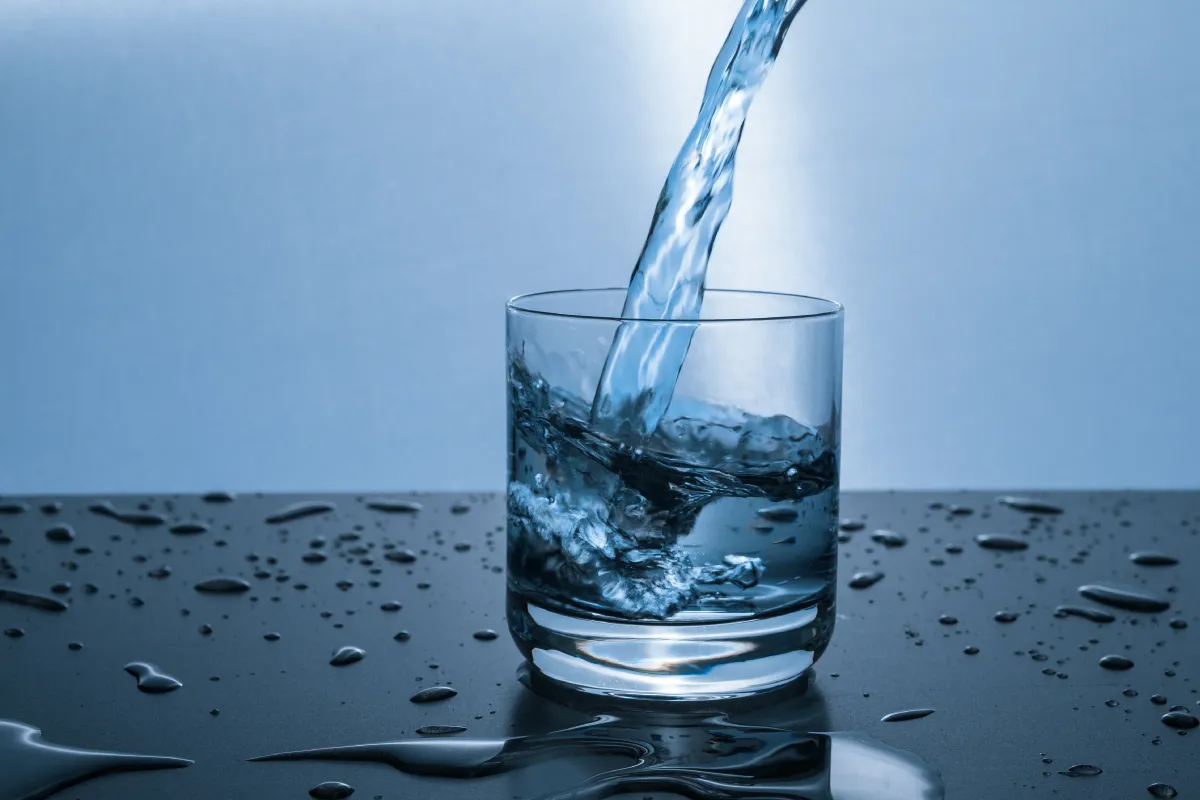Water Filtration Systems - How to Choose the Best One

Posted on August 26, 2024.
Picture this: you've just moved into your dream home in a beautiful city in Central Texas. As you're getting settled, you decide to fill up a glass of water from your kitchen tap. But as you turn on the tap, you notice something off. Maybe there's a slight smell of chlorine or the water isn't as clear as you'd like. Suddenly, the quality of your household water becomes a pressing issue.
When it comes to the water we use every day, it's important to make sure it is clean and safe for consumption. This is where water filtration systems come in. These systems are designed to remove impurities from tap water, providing you with clean and healthy water for drinking, cooking, and other household uses. That's why in this article, we will discuss the different types of water filtration systems and how to choose the best one for your home.
Understanding How Water Filtration Systems Work
In terms of basic principles, understanding how a water filtration system works starts with recognizing the various filtration methods involved.
The first step usually involves mechanical filtration, which targets visible particles and sediment. Think of it as a sieve that traps larger particles like sand, silt, and debris. The efficiency of this step largely depends on the pore size of the filter; smaller pores can trap finer particles. You might come across terms like “micron ratings”—the smaller the micron rating, the finer the filtration. This is particularly important for households dealing with murky water that may have visible contaminants.
The second key process is chemical filtration, which plays a crucial role in targeting dissolved substances that mechanical filtration can’t catch. This often involves activated carbon filters, which are extremely effective at adsorbing chlorine, volatile organic compounds (VOCs), and even some heavy metals. Activated carbon has a unique property where contaminants stick to its surface, effectively removing them from the water.
Another common method under this category is ion exchange, which helps in removing hardness ions like calcium and magnesium by exchanging them for less troublesome ions like sodium. Both these methods ensure that your tap water is not just free from visible pollutants but also from those that may affect its taste, odor, and overall safety.
Lastly, we should consider biological filtration and absorption. Biological filtration involves the use of beneficial bacteria to break down organic matter and pollutants, making it a key component in systems like those employed in aquariums and some ecological water purification setups.
However, for most household water filtration systems designed for drinking water, absorption is more relevant. This process often complements chemical filtration, providing an additional layer of purification. Materials like activated alumina or bone char can effectively remove fluoride and arsenic, respectively. Together, these methods make sure your water is not only clear but also safe from various contaminants. Absorption is particularly vital for retaining the beneficial minerals while eliminating the harmful ones, ensuring the water remains healthy.
Different Types of Water Filters and Their Benefits

Among the different types of water filters available, activated carbon filters are one of the most common and versatile options. They excel at removing chlorine, which is a common disinfectant used in municipal water supplies. If your water has a distinct chlorine smell or taste, activated carbon can effectively adsorb these chemicals, significantly improving both taste and odor.
Activated carbon also targets a wide range of other contaminants like volatile organic compounds (VOCs) and even certain pesticides and herbicides. Because of its multifaceted capability, it's often incorporated into multi-stage filtration systems, providing a foundational layer of purification. If you prioritize removing unpleasant tastes and odors from your water while also targeting a broad spectrum of contaminants, activated carbon filters are an excellent choice.
Next on the list are reverse osmosis water systems. These systems are highly effective at removing a remarkable 95-99% of all contaminants, including heavy metals like lead, mercury, and arsenic, as well as fluoride and nitrates. Reverse osmosis works by pushing water through a semi-permeable membrane, which allows only water molecules to pass through while blocking larger molecules and ions.
If you're concerned about the overall purity and safety of your drinking water, reverse osmosis offers a robust solution. They are comprehensive but may also strip beneficial minerals such as calcium and magnesium from the water, which is worth considering. However, many systems come with a remineralization stage, adding back essential minerals that promote health. If ultimate purity is your primary goal, reverse osmosis could be the best option for you.
Ultraviolet (UV) purifiers are another interesting choice, especially for those who are particularly concerned about microbiological contaminants like bacteria, viruses, and protozoa. UV purifiers work by exposing water to ultraviolet light, which effectively kills or inactivates microorganisms by disrupting their DNA. These systems are excellent as a secondary level of protection in your water filtration setup, especially if you source your water from a well or live in an area prone to biological contamination.
While UV purifiers alone won't remove chemical contaminants or sediments, they are unparalleled in ensuring that the water is free from harmful pathogens. For those who are particularly health-conscious or have immune-compromised family members, integrating a UV purifier can be an additional safeguard for peace of mind.
Choosing the Best Water Filtration System for Your Home

An important aspect to consider when choosing the best water filtration system for your home is ensuring the filters you select are NSF certified. NSF International is an independent organization that sets stringent standards for public health protection. An NSF certified water filter ensures that the product has been rigorously tested and proven to remove specific contaminants as claimed. This is invaluable for your peace of mind and health, knowing that the system is credible and performs as effectively as you expect.
Keep in mind that various NSF certifications exist, targeting specific contaminants and filtration efficacy. For instance, NSF/ANSI Standard 42 addresses the reduction of aesthetic impurities such as chlorine, taste, and odor, while NSF/ANSI Standard 53 covers health-related contaminants like heavy metals and volatile organic compounds. When making a selection, scrutinize the certifications attached to each system to ensure they align with your specific water quality concerns.
For families aiming to secure clean water throughout the entire household, a whole house water filtration system is a comprehensive solution. Whole house systems are designed to filter all the water entering your home, meaning every faucet, shower, and appliance will dispense filtered water. This is particularly beneficial if you are concerned about contaminants that can affect not just your drinking water but also your skin and household appliances.
For example, if your local water supply is high in chlorine or has hard water issues, a whole house system can mitigate these concerns across all usage points, extending the life of plumbing and improving the quality of water used for cooking, bathing, and cleaning. In large households where water demand is extensive, a whole house system ensures that you never experience delays or limitations in accessing filtered water. Furthermore, most whole house systems require less frequent filter replacements compared to point-of-use (POU) systems, making them efficient and often cost-effective over the long term.
Related - What is the Science Behind pH Balanced Alkaline Water?
Wrapping Up
Choosing the best water filtration system involves considering the various contaminants present in your water and the specific needs of your household. Activated carbon filters are excellent for removing chlorine and improving taste, making them ideal for those prioritizing odor and taste. Reverse osmosis systems are perfect for ensuring the highest purity levels by removing a broad spectrum of contaminants, including heavy metals. If microbiological safety is a concern, UV purifiers act as a robust line of defense against bacteria and viruses.
At WATER TREE WACO, we understand that having access to clean and safe drinking water is essential for the well-being of your household. Our team of experts is dedicated to providing top-of-the-line water filtration systems that cater to your specific needs. Whether you are concerned about removing contaminants, improving taste, or balancing pH levels, we have the perfect solution for you.
Discover the ultimate water solutions for your home and health with our wide range of products. From reverse osmosis systems to specialty water options and premium filtration systems, we have everything you need to ensure pure, healthy water every day. Explore our offerings and find the perfect solution for you! Feel free to reach out to us at [email protected] or call us at (254) 340-0716 to discuss your specific needs.
How Can We Help?
Write to Us